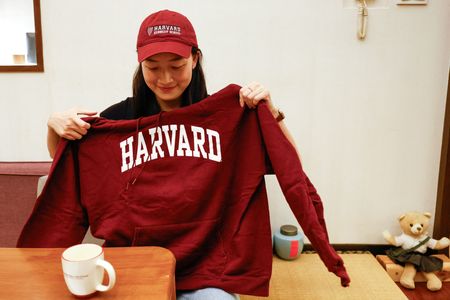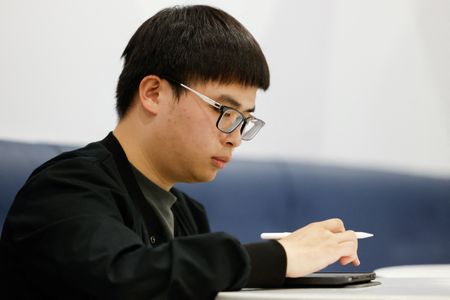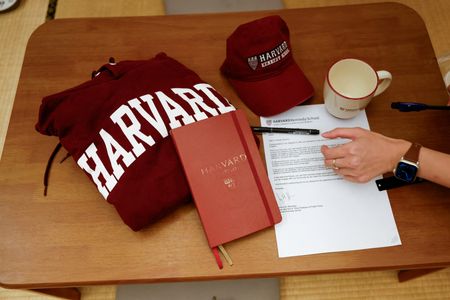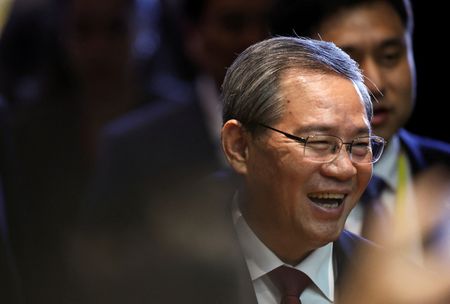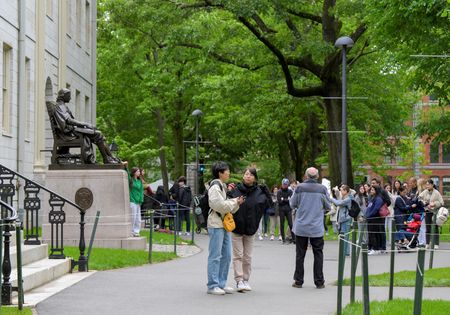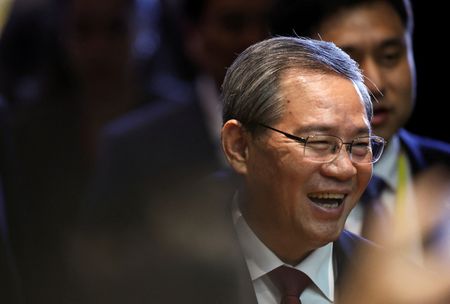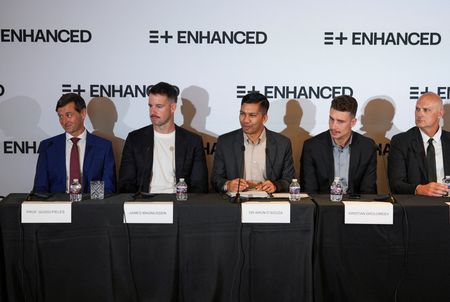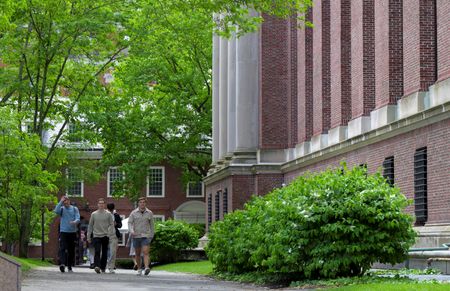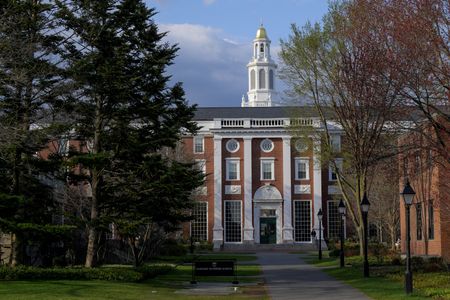By Katie Tam, Angie Teo and Ann Wang
TAIPEI (Reuters) -With an admission letter in hand, Taiwanese student Yu-hsuan Lin was ready to attend her dream school, Harvard University, this September.
But the decision of U.S. President Donald Trump’s administration to revoke Harvard University’s ability to enrol foreign students made her feel anxious and helpless, Lin told Reuters at her Taipei apartment.
“The path towards my dream is actually harder and tougher than I expected. There are so many uncertainties,” she said.
“I thought that I could accept all the changes along the way as what we have gone through in the past half year. However, this one is specifically (targeted) at the international students. So I kind of feel like really hit by it. And that’s why I feel kind of anxious.”
The decision marked a significant escalation of the Trump administration’s campaign against the elite Ivy League university in Cambridge, Massachusetts.
Harvard called it a “blatant violation” of the U.S. Constitution and other federal laws.
A U.S. judge temporarily blocked the administration’s order, but it did not provide comfort to Lin who has yet to receive her visa.
“I think I would either defer my studies at Harvard, as they said that’s one of the possibilities, or I would probably apply for master programmes in Europe or the UK.”
Taiwan’s education ministry said it expects 52 Taiwanese students to be affected by the U.S. government’s move, the island’s official Central News Agency reported.
Another Taiwanese student, who asked to be identified only by his first name Vince, planned to start his public health studies at Harvard this year.
“We are certainly feeling pretty nervous, and it’s been a dream for me to come from a small town in Taiwan all the way to Harvard,” he said.
“I think that this is the best that the United States can offer. So, I would like to plead to the president that, please, I hope that this continuous generosity can be continued.”
(Reporting by Katie Tam, Angie Teo and Ann Wang; Writing by Ben Blanchard; Editing by Christopher Cushing)

